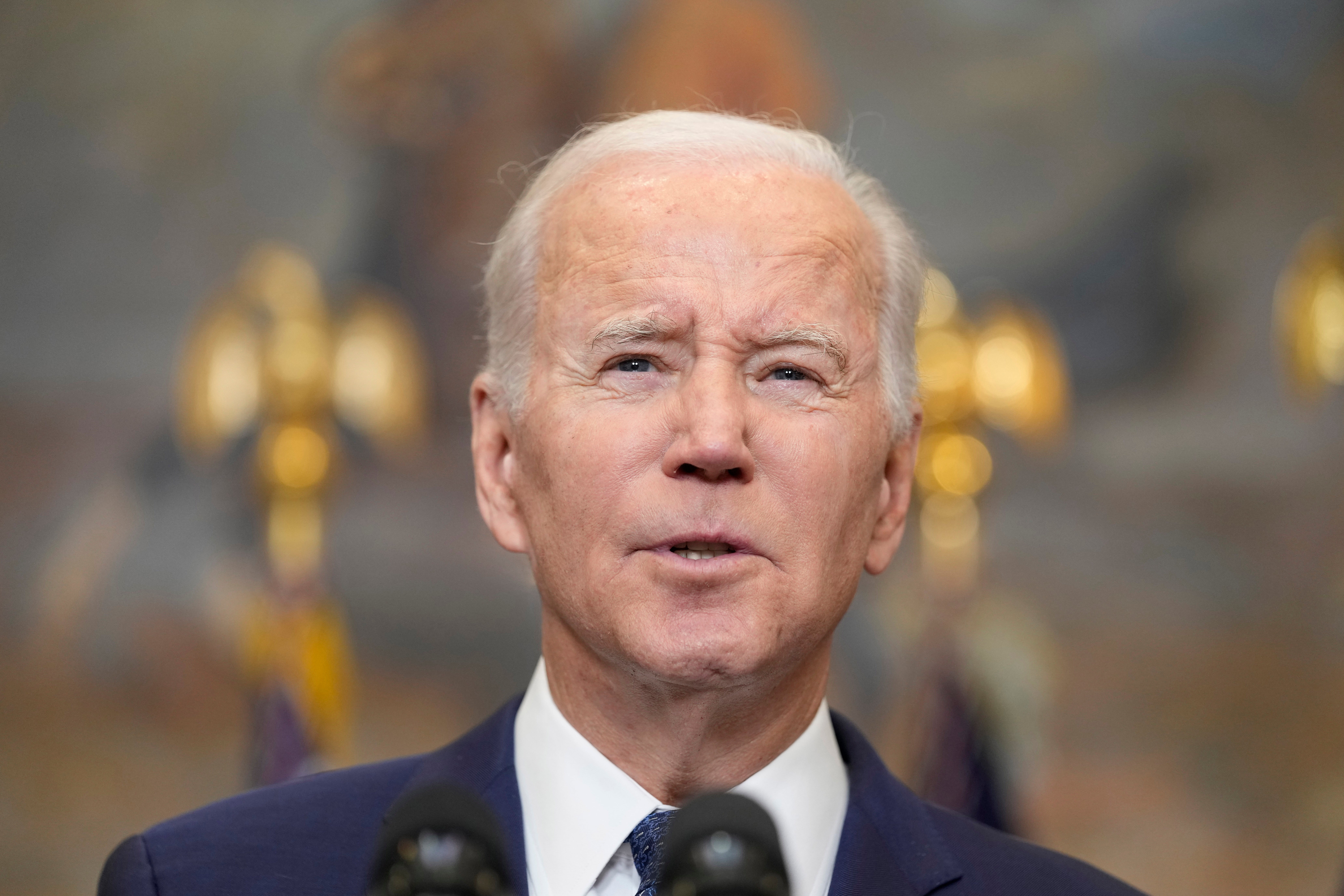Biden extends deportation protection for Hong Kong residents
President Joe Biden has signed off on a two-year extension of a program that protects Hong Kong residents in the U.S. from deportation

Your support helps us to tell the story
From reproductive rights to climate change to Big Tech, The Independent is on the ground when the story is developing. Whether it's investigating the financials of Elon Musk's pro-Trump PAC or producing our latest documentary, 'The A Word', which shines a light on the American women fighting for reproductive rights, we know how important it is to parse out the facts from the messaging.
At such a critical moment in US history, we need reporters on the ground. Your donation allows us to keep sending journalists to speak to both sides of the story.
The Independent is trusted by Americans across the entire political spectrum. And unlike many other quality news outlets, we choose not to lock Americans out of our reporting and analysis with paywalls. We believe quality journalism should be available to everyone, paid for by those who can afford it.
Your support makes all the difference.President Joe Biden on Thursday signed off on a two-year extension of a program that protects Hong Kong residents in the U.S. from deportation, renewing the protection until January 2025.
Biden first authorized the program, the Deferred Enforced Departure for Certain Hong Kong Citizens, in August 2021 for 18 months. It was set to expire on Feb. 5.
The decision to provide a temporary safe haven was in response to Hong Kong's sweeping national security law and other measures that undercut the rights promised when the former British colony was handed back to China in 1997.
“With this action, we are demonstrating again President Biden’s strong support for the people of Hong Kong in the face of increasing repression by the (People's Republic of China)," the White House National Security Council said in a statement. "We continue to strongly oppose the PRC’s use of its National Security Law to deny the people of Hong Kong their human rights and fundamental freedoms, undermine Hong Kong’s autonomy, and chip away at Hong Kong’s remaining democratic processes and institutions.”
The Chinese government moved to stifle opposition following protests in Hong Kong in 2019 against a proposed law allowing extraditions to mainland China. Under the national security law, which took effect in June 2020, police have cracked down on opposition politicians, activists and demonstrators.
Changes were also made to Hong Kong’s election laws to reduce the number of directly elected lawmakers and give a largely pro-Beijing committee the leeway to nominate lawmakers aligned with the mainland government.
Since China imposed its national security law, at least 150 opposition politicians, activists and protesters have been taken into custody on politically motivated charges, including secession, subversion, terrorist activities, and collusion with a foreign country or external elements, according to the White House.
Additionally, it said 1,200 political prisoners are now behind bars, and over 10,000 people have been arrested on other charges in connection with anti-government protests.
In addition to criticizing Beijing's crackdown on democracy activists in Hong Kong, Biden has repeatedly taken China to task for human rights abuses against the Uyghurs and other ethnic minorities, coercive trade practices, military provocations against self-ruled Taiwan and differences over Russia’s prosecution of its war against Ukraine.